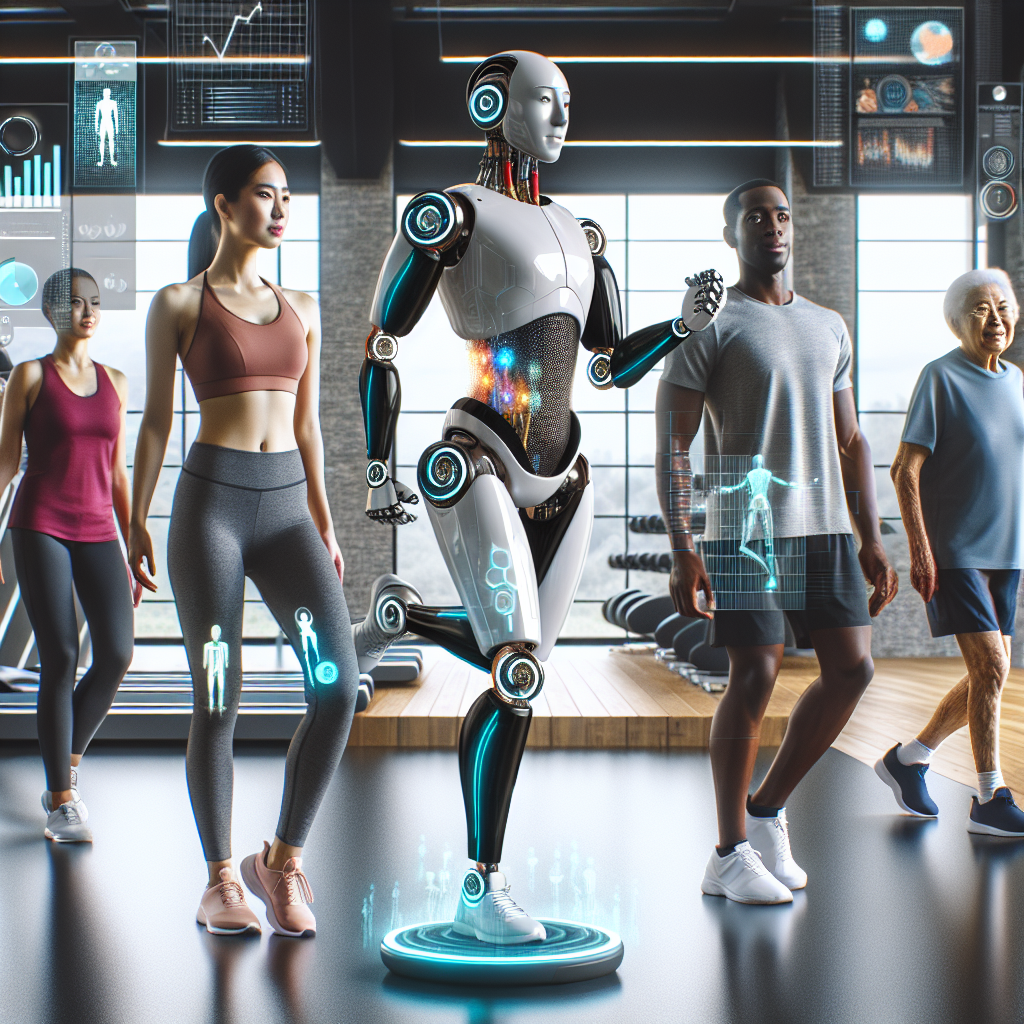The Role of AI in Personalized Fitness Training
In recent years, there has been a significant increase in the use of artificial intelligence (AI) in various industries, including the fitness industry. AI has the potential to revolutionize the way we exercise and stay healthy by providing personalized fitness training programs tailored to individual needs and goals. This article will explore the role of AI in personalized fitness training and how it is changing the way we approach fitness.
What is AI in Fitness?
AI refers to the simulation of human intelligence in machines that are programmed to think and act like humans. In the fitness industry, AI is being used to create personalized training programs for individuals based on their unique characteristics such as age, weight, fitness level, and goals. AI algorithms analyze data collected from wearables, fitness apps, and other sources to provide personalized recommendations on workouts, nutrition, and recovery.
How Does AI Personalize Fitness Training?
AI uses advanced algorithms to analyze data from various sources to create personalized fitness training programs for individuals. These algorithms take into account factors such as age, weight, fitness level, goals, and preferences to create a customized plan that is tailored to the individual’s needs. For example, AI can recommend specific exercises, sets, and reps based on an individual’s fitness level and goals. It can also adjust the intensity and duration of workouts based on real-time feedback from wearables and sensors.
AI can also analyze data on nutrition and sleep patterns to provide recommendations on diet and recovery. By tracking food intake and sleep quality, AI can help individuals make healthier choices and optimize their recovery for better performance and results.
Benefits of AI in Personalized Fitness Training
There are several benefits of using AI in personalized fitness training:
1. Personalization: AI can create customized training programs tailored to individual needs and goals, leading to better results and adherence to the program.
2. Real-time feedback: AI can provide real-time feedback on performance, form, and progress, helping individuals make adjustments to their workouts for optimal results.
3. Motivation: AI can provide motivational cues, reminders, and rewards to keep individuals engaged and motivated to achieve their fitness goals.
4. Efficiency: AI can optimize workout schedules, rest periods, and recovery strategies to maximize results in less time.
5. Adaptability: AI can adapt training programs based on changes in fitness level, goals, or preferences, ensuring that individuals continue to progress and see results.
Challenges of AI in Personalized Fitness Training
While AI has the potential to revolutionize personalized fitness training, there are some challenges that need to be addressed:
1. Data privacy: AI relies on collecting and analyzing personal data, which raises concerns about privacy and security. Individuals need to trust that their data is being used responsibly and ethically.
2. Bias: AI algorithms can be biased based on the data they are trained on, leading to inaccurate recommendations or unfair treatment. It is important to address bias in AI to ensure that recommendations are fair and effective.
3. User experience: AI can sometimes be overwhelming or impersonal, leading to a lack of engagement or motivation. Designing user-friendly interfaces and personalized experiences is essential for the success of AI in fitness training.
4. Integration: AI systems need to be integrated with existing fitness apps, wearables, and devices to provide a seamless experience for users. Compatibility and interoperability are key considerations for successful implementation of AI in fitness training.
FAQs
1. How does AI personalize fitness training?
AI uses advanced algorithms to analyze data from various sources such as wearables, fitness apps, and sensors to create personalized training programs tailored to individual needs and goals. It takes into account factors such as age, weight, fitness level, goals, and preferences to provide customized recommendations on workouts, nutrition, and recovery.
2. What are the benefits of using AI in personalized fitness training?
Some benefits of using AI in personalized fitness training include personalization, real-time feedback, motivation, efficiency, and adaptability. AI can create customized training programs, provide feedback on performance, motivate individuals, optimize workout schedules, and adapt training programs based on changes in fitness level or goals.
3. What are the challenges of using AI in personalized fitness training?
Some challenges of using AI in personalized fitness training include data privacy, bias, user experience, and integration. Concerns about data privacy and security, bias in AI algorithms, user engagement, and system integration need to be addressed to ensure the success of AI in fitness training.
In conclusion, AI is playing an increasingly important role in personalized fitness training, providing individuals with customized programs tailored to their unique needs and goals. By analyzing data from various sources and using advanced algorithms, AI can create personalized recommendations on workouts, nutrition, and recovery, leading to better results and adherence to the program. While there are challenges to overcome, the potential benefits of using AI in fitness training are vast, and the future of personalized fitness is looking brighter than ever.

